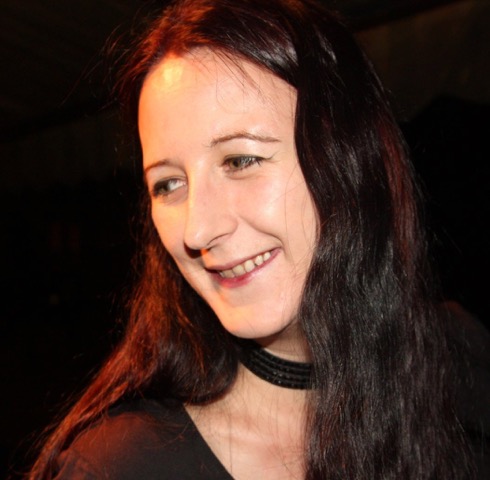 We are starting a new series of posts where we interview interesting people (sometimes loosely) related to our agile and lean world.
We are starting a new series of posts where we interview interesting people (sometimes loosely) related to our agile and lean world.
First off is Liz Keogh, Lean/Agile consultant, hard-core BDDer, speaker, blogger, poet, fantasy author, pattern hunter, complexity thinker, Londoner and unrepentant Goth.
S&K: Explain what you do in one sentence?
Liz: I make the world a better place by helping people reach their potential.
S&K: What would you like to be remembered for?
Liz: Ideally, somewhere down the way, my teaching will end up contributing to a manned Mars mission so that we get off-planet. It’s not safe to only have one! I don’t mind if nobody remembers that it was me that did the teaching, though, as long as it happens. I don’t have any children, just my ideas. They’ll go off and live without me and change and grow, and that’s as it should be.
S&K: What is your biggest success?
Liz: Getting people to stop looking for certainty where it doesn’t exist, at some fairly high levels in some fairly large organizations.
S&K: What is your biggest regret?
Liz: Using login as an example for BDD. It’s about the most boring scenario you can come up with, and nobody learns anything. Interesting scenarios, especially ones where the outcome isn’t quite certain, are far more important!
S&K: What would be your ideal job?
Liz: This one. Or maybe a fantasy fiction writer. But I get to do that in my spare time, anyway.
S&K: How do you estimate/forecast?
Liz: I try to avoid it (I know, not what you want to hear from a Kanban person but it’s true!). If I have to do it then:
- I remember it’s about prioritization and capacity allocation, so once it’s good enough to do that, we’re done
- I try to use real data wherever possible, and
- wherever real data doesn’t exist it’s because it’s new for the context, which means there’s unknown unknowns and significant risk, so I try to get people to address the risk before trying to estimate or forecast something they’ve never done before.
In my own life, I usually keep enough options open that I don’t need to estimate much. I just work out what’s most important and then I do that. I’m pretty good at fitting things in at the last minute, though.
S&K: What valuable lesson have you learned … and who did you learn it from?
Liz: Apophenia means we can’t usefully do root cause analysis in a complex space; we assume we understand the cause and we usually don’t. I learned this primarily from Dave Snowden and his teachings around Cynefin, though I don’t think he mentions Apophenia specifically. It’s the tendency for human beings to see patterns where none exist… and then we get fixated on those patterns, because of confirmation bias. So sometimes changing whatever we can (and making sure the change is safe-to-fail) is more important than worrying about what needs to change, and that was hard for me to learn. I still do things wrong in this space because I’m still human. It’s unavoidable, I’m afraid!
If you could have one wish, what would it be?
Liz: Manned Mars Mission in my lifetime. That would make me so very happy.
S&K: What is your biggest weakness?
Liz: Mortality. I’d love to live forever, and do more stuff, and see us colonize Europa too, but that isn’t going to happen. Mortality is also a driving force, though, so at least knowing I’ve got a limited time on the planet keeps me motivated.
S&K: What question do you wish we’d asked and how would you have answered it?
Liz: I wish you’d asked me more about my professional relationships, rather than just the one lesson. I don’t think we focus enough on relationships between people. We keep talking about work as if it happens with one person, but nothing happens in a vacuum. Everything is about relationships. So I wish some of these questions were focused on other people more – Who’s helped me? Who have I helped?
Big shoutouts go to Dan North and Chris Matts (BDD, Real Options, Deliberate Discovery and tons of other bits and pieces), Linda Rising (Fearless Change and endless patience and positivity), Jean Tabaka (Systems Thinking, without which I wouldn’t have understood Cynefin), Eric and Marian Willeke (organizational change and adult learning, respectively), David J. Anderson (Kanban and intellectual honesty), Katherine Kirk (seeing the world in terms of relationships) and obviously Dave Snowden (Cynefin and all things Complex). There are about a hundred other people who deserve repeated thanks for having helped me too. I hope I said thank you to them enough, so they know who they are.
I’m most proud of having helped the BDD community. I think we’ve created a space that’s really welcoming and mostly focused on the right stuff. The conversation around bounded and centred communities that we kicked off while trying to define BDD made me realize that it’s very different to a lot of other movements out there. I like to think that the core BDD’ers attitude to other people has helped teach good lessons, even without the actual practices and principles.
Thanks to Liz for her amazingly honest answers. You can read Liz’s blog at lizkeogh.com and follower her on Twitter @lunivore
Who would you like to know more about? Feel free to add your suggestions to our comments section or contact us directly.

Lovely interview. Thank you both for doing this.